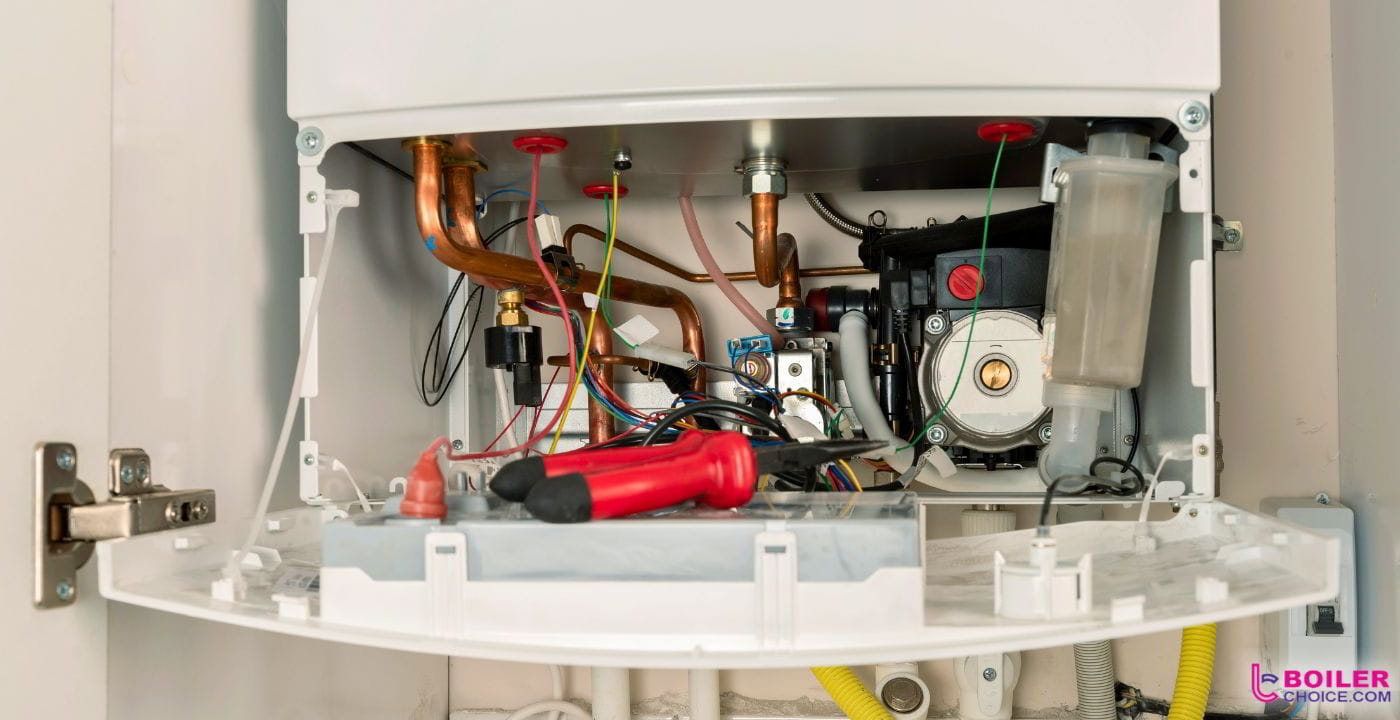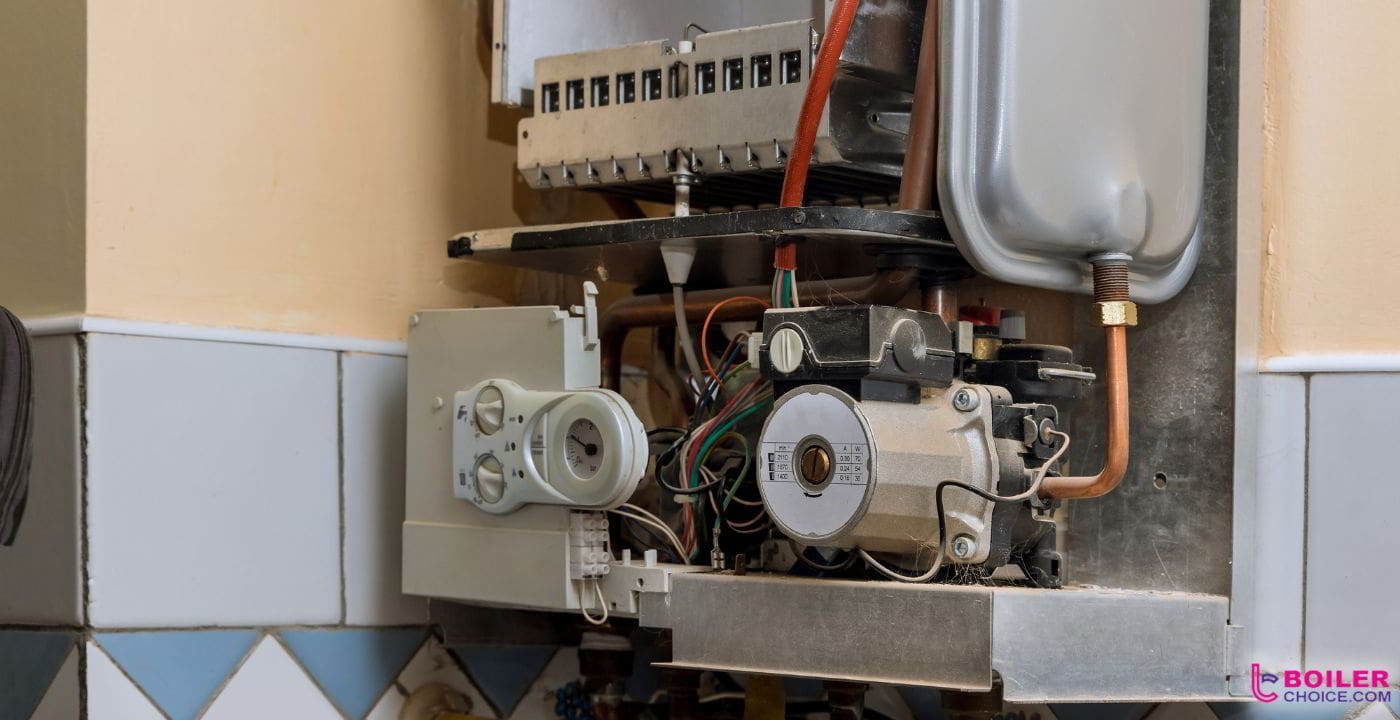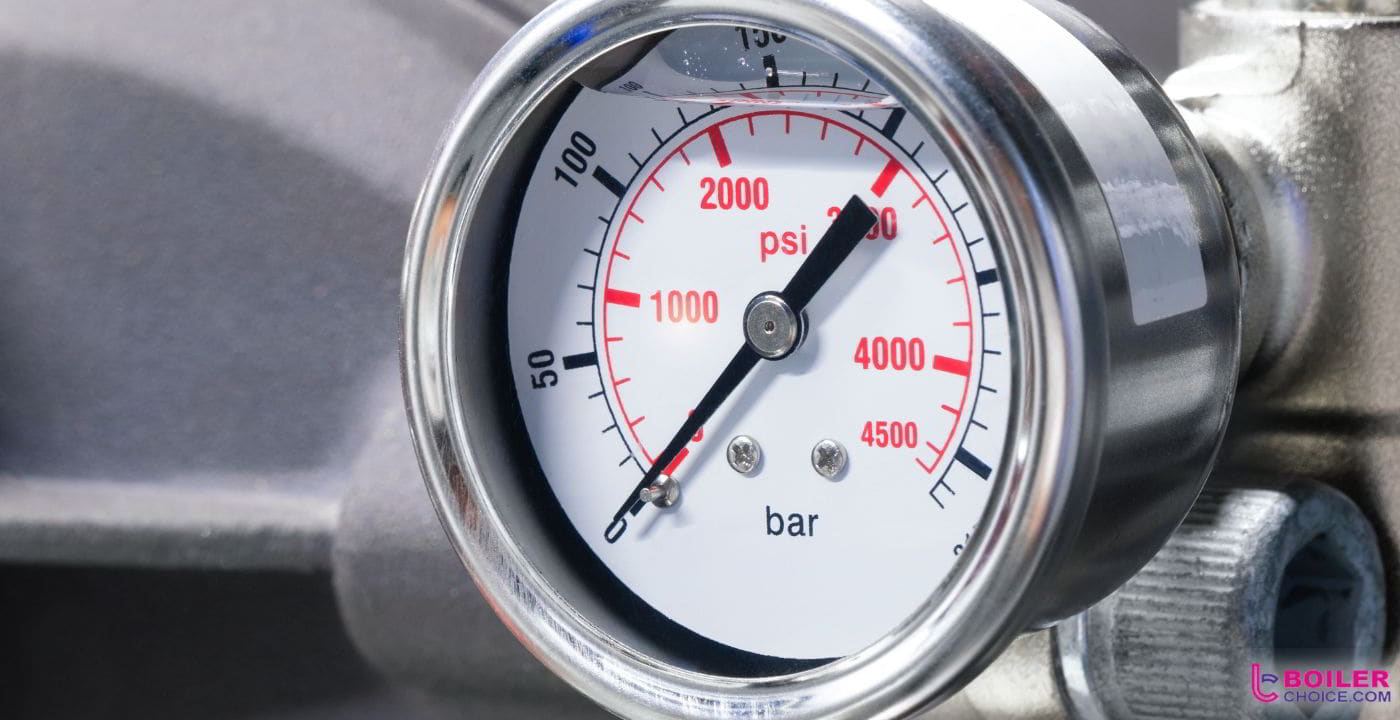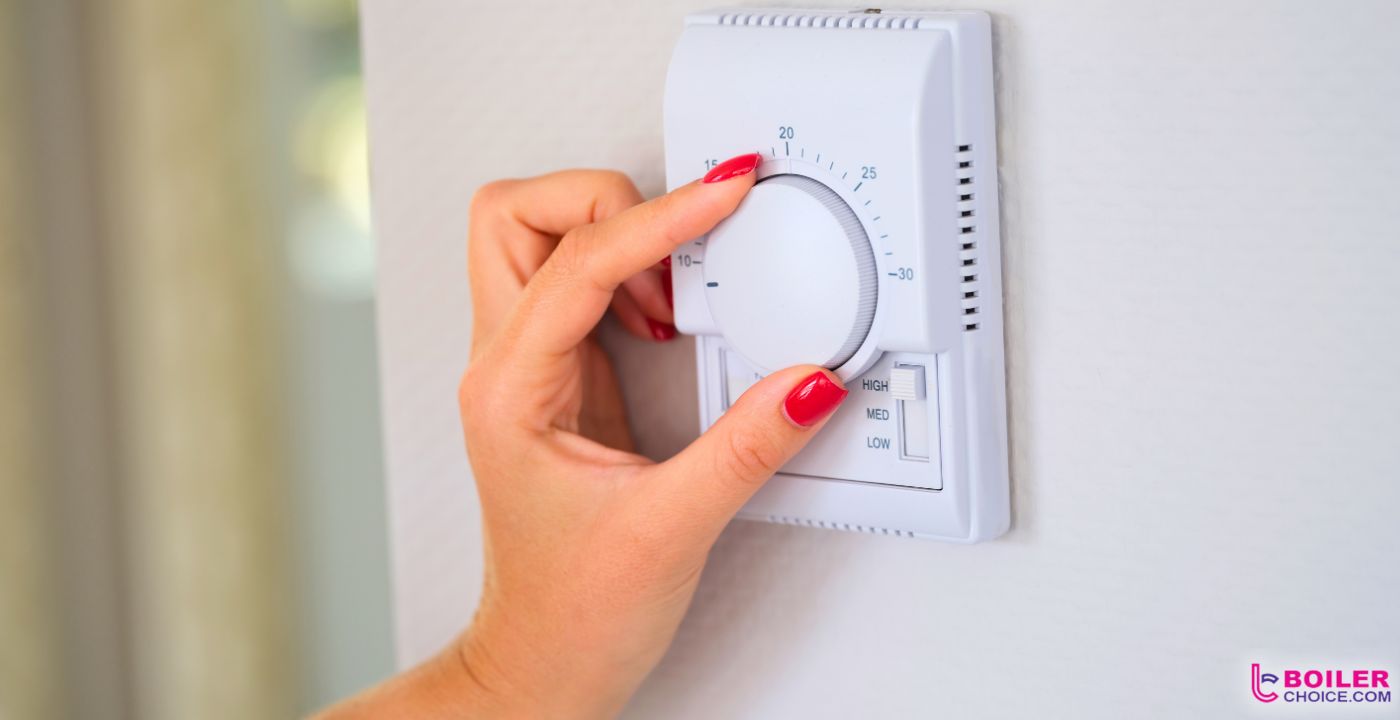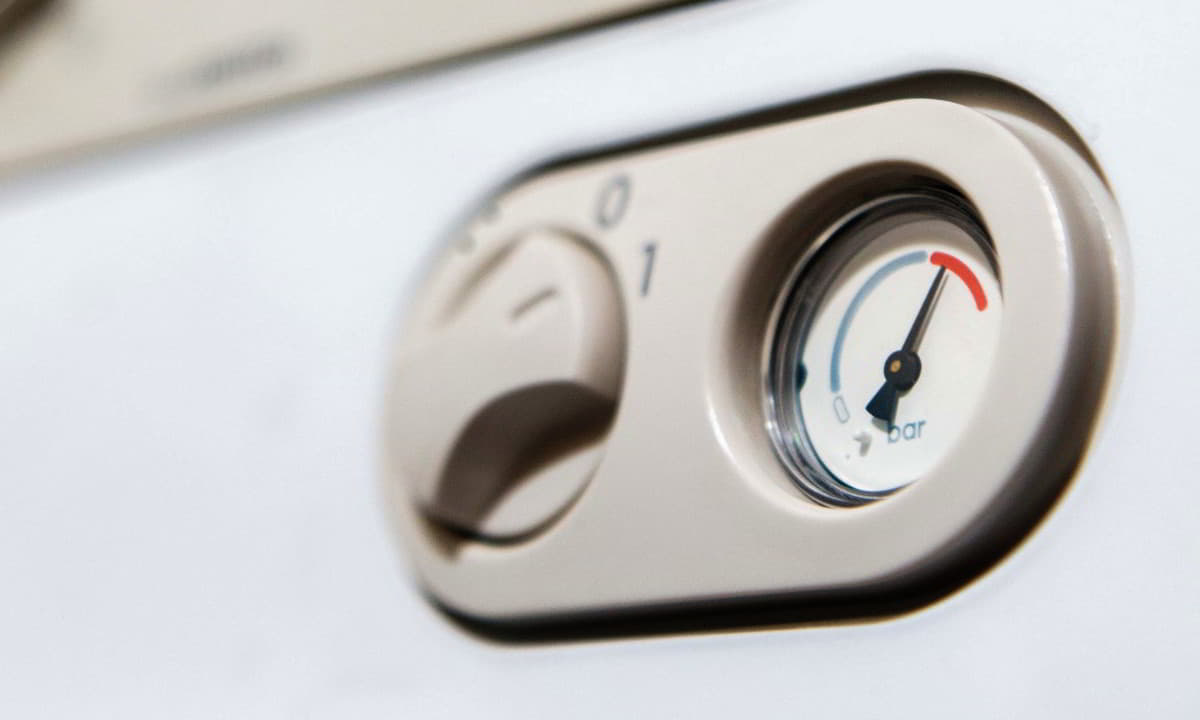
When boiler pressure is too high, your central heating won’t work efficiently which can be bad for the heating system, your energy bills and your carbon footprint. Releasing pressure is a simple task that you can perform yourself by locating the pressure release valve, opening it and letting out enough water to lower the pressure to the correct level.
Of course, you’re going to want to know more than how to release pressure from the boiler, so we are here with a step by step guide, as well as the causes and how to prevent it from recurring. Keep reading to learn more!
Short on Time? Key Takeaways
- High boiler pressure can cause inefficiencies, higher energy bills and damage to your heating system.
- Boiler pressure should sit between 1-2 bars, depending on whether the heating is on or off.
- Causes of high pressure include a faulty pressure release valve, a water leak or a faulty filling loop.
- Boiler pressure can be lowered via the pressure release valve or by bleeding the radiators.
What Pressure Should My Boiler Be at?
Your boiler’s pressure is typically displayed on a built-in pressure gauge and should usually be between 1 and 2 bars. If you aren’t running any hot water and the heating is, the pressure will be closer to 1 but if the heating is on, it will be around 1.5.
Of course, you’re going to want to know more than how to release pressure from the boiler, so we are here with a step by step guide, as well as the causes and how to prevent it from recurring. Keep reading to learn more!
Usually, the area that shows the correct pressure will be in green so that you’re clear on whether the pressure is correct or not.
Is High Pressure Dangerous?
Fortunately, high boiler pressure isn’t usually dangerous. The boiler pressure relief valve (PRV) will protect the heating system by letting water escape via a pipe through the external wall that’s located near the boiler.
In most cases, if the pressure stays too high, for too long, the boiler will simply shut down as the Pressure Release Valve will be triggered. If this doesn’t occur, the boiler might break and you could end up with some wet flooring!
How to Fix High Pressure
Sometimes, pressure can be fixed at home by yourself if the issue lies with a control valve. Follow these simple steps to reduce pressure in your boiler:
How to Let Pressure Out of the Boiler | Step-by-Step Guide
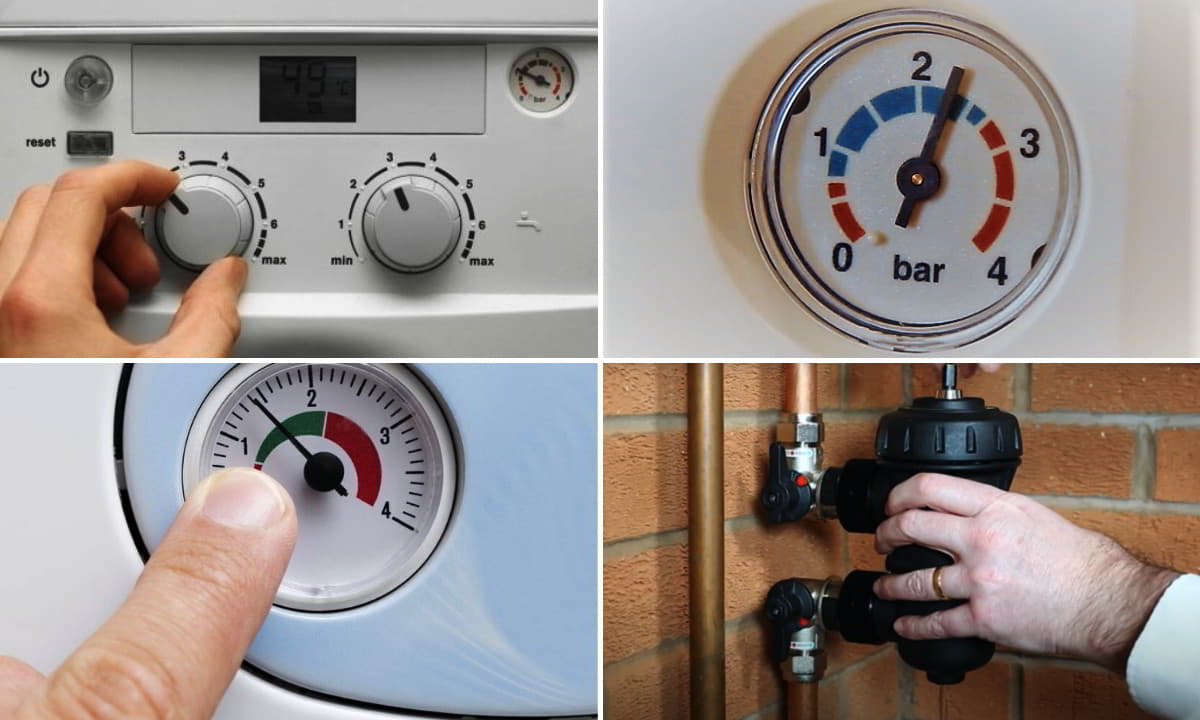
- Switch off your boiler, give your system time to cool down;
- Locate the boiler pressure gauge and check the reading;
- If it is above 2 bars, you need to reduce the pressure;
- Open the filter valve, keeping an eye on the gauge and closing it tightly once it has returned; to 1 bar. Don’t forget to place a bucket under the filter!
Another method to reduce pressure from your boiler is to bleed your radiators. Locate the bleed valve on your radiator, place a bowl underneath it and then, slowly, open it using a radiator bleeding key.
Why Does My Boiler Keep Gaining Pressure?
It’s frustrating when your boiler pressure is too high, and it’s understandable you’d want to know why it’s happening. There are a number of reasons why your boiler may be gaining pressure, and these include:
- A faulty pressure release valve
- A broken pressure gauge
- A water leak in the system
- A faulty filling loop
- Too much water in the boiler
Another reason could be that your boiler needs replacing. Typically boilers need replacing between every 10 and 15 years. If the pressure keeps rising in your boiler, and it is around this age, it will be more cost-effective to replace it as there will come a point where it can no longer be fixed or is too expensive to repair.
How to Prevent High Boiler Pressure
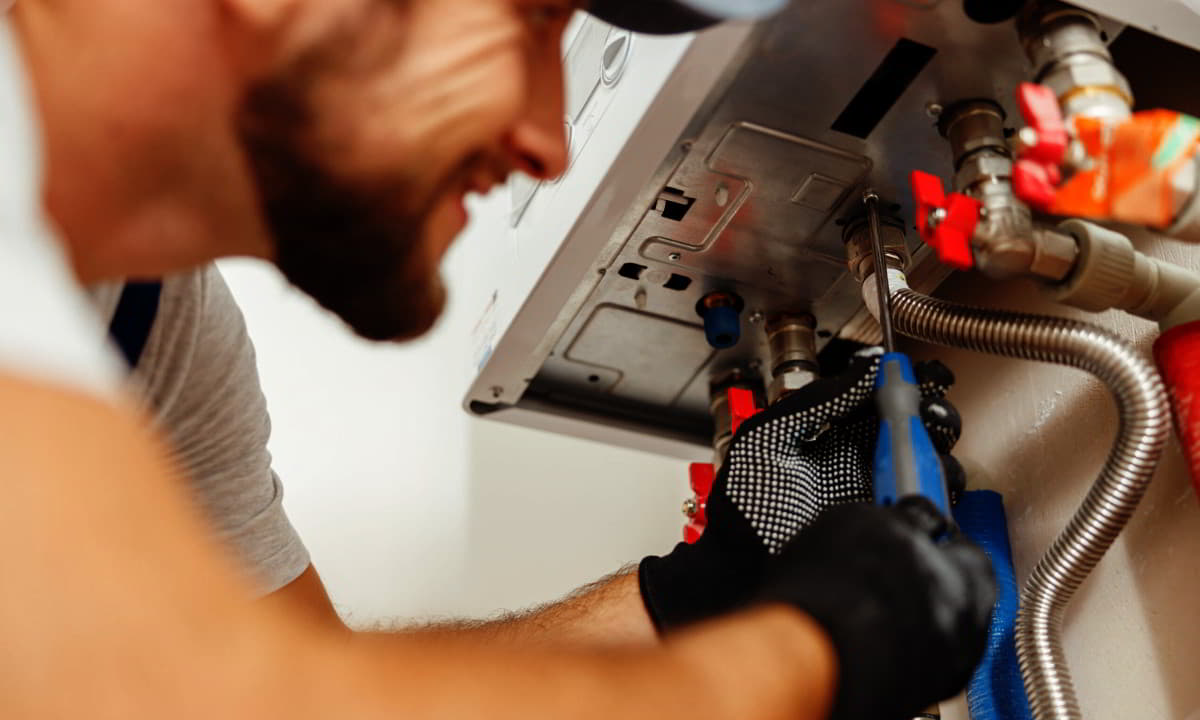
Once you’ve fixed your high boiler pressure by releasing some of the pressure, you’ll want to ensure that those high levels don’t return. Here are some simple steps you can take to keep your pressure at the correct level:
Schedule Regular Maintenance
By regularly maintaining your boiler you will ensure that it’s functioning correctly and identify any issues that might cause major problems with your heating system.
Monitor the Water Level
Check the pressure gauge regularly to ensure that the boiler’s water level is maintained to the correct level to prevent the system overheating and causing issues with the pressure.
Use the Filling Loop Correctly
Ensure your filling loop is working correctly. This is used to add water to the system, and if it’s faulty, it can cause boiler pressure to rise.
Install a Pressure-Reducing Valve
Fitting a pressure-reducing valve can help regulate and maintain safe boiler pressure levels, preventing high pressure from building up.
Frequently Asked Questions (FAQs)
What Should I Do if My Boiler Pressure is Too Low?
If you find that your boiler pressure is on the low side, you can try to increase it by adding more water to the system using the filling loop. However, if you are unsure how to do this or if the pressure keeps dropping, it’s best to contact a professional heating engineer to diagnose and fix the issue.
Can High Boiler Pressure Cause Damage to My Home?
High boiler pressure can cause damage to your heating system, but it’s unlikely to cause damage to your home unless the pressure relief valve fails in which case, the boiler pressure would remain high and start leaking. In this instance, it could cause damage to your property in areas such as flooring and cupboards.
Should I Attempt to Fix High Boiler Pressure Myself, or Should I Call a Professional?
Whilst you can fix high boiler pressure yourself with the methods we’ve already discussed, if you aren’t comfortable around boilers, then we would always recommend calling a heating professional who can fix any issues safely. Sometimes, there might be more complex mechanical faults behind the rising pressure, so if the above methods don’t help, consult a heating engineer.
What Other Signs Should I Look Out for to Indicate that My Boiler May Be Malfunctioning?
Other signs that your boiler may be malfunctioning include strange noises coming from the system, low heat output, uneven heating and an increase in your energy bills. If you notice any of these signs, it’s best to contact a professional heating engineer who can advise you on what to do.
Summary
High boiler pressure is rarely dangerous, but it can cause a breakdown and reduce energy efficiency. In most cases, it requires a simple fix that you can perform yourself at home. If you continue to get high boiler pressure or you don’t feel confident in fixing your pressure, contact your local heating engineer who can take a look for you.
This blog was written in collaboration with Eddie Scoffin, the founder of Boiler Choice. Eddie has been installing boilers for over a decade. With a passion for excellence and customer satisfaction, Eddie’s leadership and expertise have been instrumental in the success of Boiler Choice. His commitment to making the boiler installation process hassle-free for customers has earned him a respected reputation in the industry.
Updated on May 1, 2023


